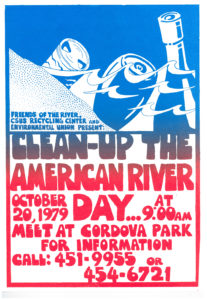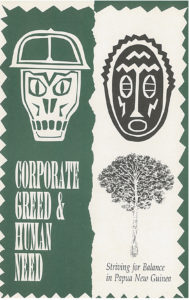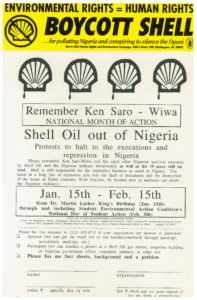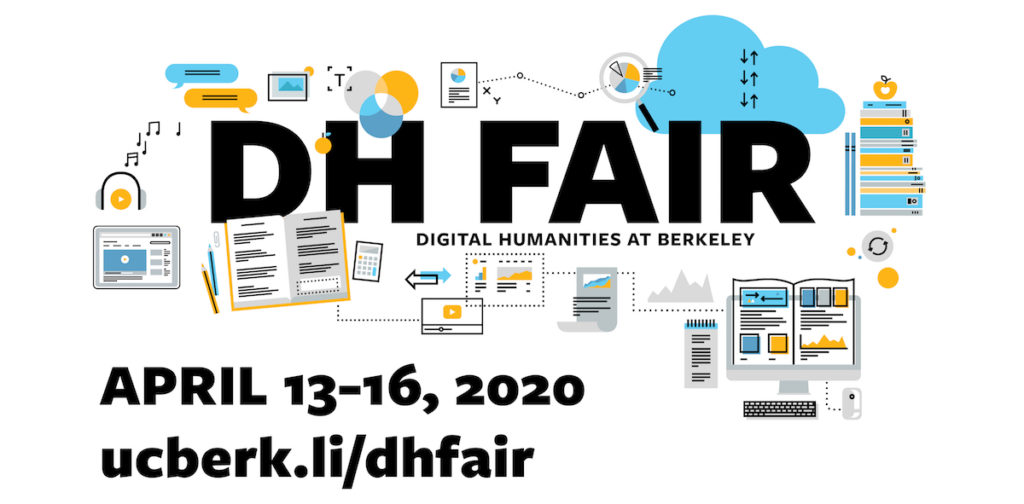Author: UC Berkeley Library
The Library Is More Than a Place
by Katherine Y. Chen
When I first began at Cal, I was excited to experience dorm life, take interesting classes, and study with my friends in the library. Before working at the Oral History Center, I viewed the library as merely a physical space to sit and study. However, working at the Oral History Center (OHC) quickly dispelled this false notion.
Through my tenure at the OHC and my experience with research from my classes, I have learned that the library is more than a building in which to study. The library offers a multitude of resources for students — databases encompassing different topics and mediums such as ProQuest for newspaper articles, librarians ready to assist students in planning out papers, and primary sources such as personal interviews. After an informative meeting with a librarian introducing all these resources and more, I quickly began to utilize them in my research. I spoke to a librarian who helped me find multiple sources for my papers; I learned how to navigate the infinite databases accessible to students; and I learned which database to use to find specific types of sources.
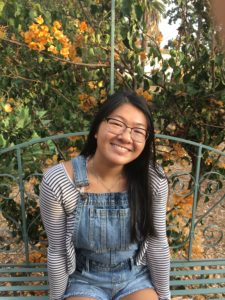
Furthermore, my work at the OHC greatly helped me hone my research skills. I learned how to navigate an archive, how to find specific information, and had the opportunity to help fellow students as well. While promoting the Carmel and Howard Friesen Prize in Oral History Research to my peers, I was able to utilize all the skills I had learned. I helped students navigate the OHC’s archive to find interviews, and gave advice on further research.
I became very familiar with the different projects and subject areas the OHC has to offer. My personal favorites are the Women Political Leaders project and the Dreyer’s Grand Ice Cream project. It was gratifying and empowering to read about the impact women had on politics, especially as an Asian American woman who intends to pursue law. Furthermore, ice cream is a favorite treat of mine, and to learn about how Dreyer’s Grand Ice Cream became widely popular was incredibly interesting.
My experience at the OHC exposed me to the many resources the library has to offer. In turn, I aimed to introduce my peers to the wonders of the library. For example, my friend was writing a research paper for her class and was having trouble keeping her sources in one accessible place. Based on what I learned, I recommended the saving grace of my paper to her — Zotero. Zotero is a program used to store and cite sources, and a librarian recommended it to me after I described having the same issue. Once downloading Zotero, my friend had a much easier time with her sources, and citing them was even easier.
Additionally, I recommended an oral history to another friend of mine who needed to find a primary source for their paper. They needed a source from a specific era, and I remembered reading over oral histories that fit what they were looking for. I sent over the link for the AIDS Epidemic in San Francisco Oral History Project. I wanted to show my peers that the library is not just a building to study in, but a plethora of resources right underneath their noses.
To everyone reading, especially Cal students, take the time to learn more about the resources at the library. Take advantage of all the library has to offer, and I guarantee you will be all the better for it.
Katherine Y. Chen just finished her first year at Berkeley. She is majoring in rhetoric with a minor in public policy.
Newly-processed additions to the Sierra Club Records at The Bancroft Library are the latest highlight of an NHPRC grant-funded project to make available 13 archival collections relating to environmental movements in the Western U.S.
Happy Birthday to the Sierra Club – turning 128 years old this month
And many more! Now one of the oldest and largest conservation organizations in the world, the Sierra Club was founded on May 28, 1892 in San Francisco by John Muir to promote conservation of the natural environment through public education, legislation and citizen action. Since then, the club has achieved a number of notable victories, including establishing and protecting national forests, parks and monuments; stopping dam construction in the Grand Canyon and Dinosaur National Park; fighting to keep the Antiquities Act intact; and campaigning for the passage of the Alaska National Interest Lands Conservation Act and the Wilderness Act.
Fortunately, the significance of this non-profit organization’s unparalleled history of conservation was recognized early on, even before the modern environmental movement truly took off. In 1958 The Bancroft Library became the official repository for the Sierra Club. The first series of records from the organization came through Bancroft’s doors in the 1970s. Over the decades the collection has grown with periodic installments as more recent records are added to the archives. The Sierra Club collection is a significant part of what has evolved into a major collecting theme within Bancroft’s curatorial umbrella of Western Americana: environmental movements of the 20th century.
Project wrap-up: NHPRC grant makes available newly-opened environmental collections and additions to ongoing collections
The Bancroft Library is pleased to report the completion of a two-year National Historical Publications and Records Commission (NHPRC) grant project resulting in the processing of 13 collections totaling 384.25 linear feet of records. These newly-accessible resources include the latest additions to four collections of Sierra Club records, along with nine other archival collections relating to environmental movements in the Western U.S.
The collections processed for the project — selected by Theresa Salazar, Bancroft’s Curator of Western Americana — were chosen because of high demand and their likely benefit to multiple areas of scholarship. Topics in these collections include a wide range of ecological issues related to protection and conservation of the environment via legislation and greater transparency and accountability in the wake of environmental damage. The research value of these collections is potentially wide and diverse, especially for scholars in fields such as history, environmental and forest science, natural and renewable resources, environmental and social justice, indigenous rights, human rights, animal rights and endangered species.
Archival processing of environmental collections
Processing archival collections entails intellectual and physical arrangement and description of the papers or records in a finding aid and catalog records published in library catalogs. When processing, archivists look for evidence of archival value in the materials to justify their continued preservation and storage. This is generally defined as the ongoing usefulness and significance of the materials in regards to the administrative, legal, fiscal, evidential or historical information they contain.
The processing of the Sierra Club records has proven to be especially complex. Because the organization’s records comprise a large and complex body of material, the Library determined early on that the material would be divided into more easily processed sub-collections, each of which would be further organized according to the conventional archival hierarchy of series and sub-series. These sub-collections include the general Sierra Club records, the Sierra Club San Francisco Bay Chapter and the Sierra Club California Legislative Office records, among many others.
Types of records found in the Sierra Club and other environmental collections at Bancroft may include correspondence and notes, grassroots organizing, outreach and educational campaigns, membership and promotional materials, program and subject files, reports and studies, lobbying letters, testimony, legislation and legal briefs, newsletters, clippings, maps, photographs and posters. Numerous Sierra Club oral histories, audio-visual materials and related pictorial collections can also be found at Bancroft.
Bancroft a leading repository for U.S. environmental documentation
Environmental collections are among the most frequently used materials at Bancroft. As is reflected in the material selected for the NHPRC grant, The Bancroft Library holds the records of many important environmental organizations and the papers of a range of influential environmental activists. Collections of other environmental organizations currently available for research at The Bancroft Library include the records of the Jenner Coastside Conservation Coalition, Save the Bay, Save-the-Redwoods League and Urban Habitat. Also available are the papers of environmental educators, leaders and activists such as David Brower, Newton B. Drury, Mark Evanoff, Aldo Leopold, Robert Marshall, Sylvia McLaughlin and Margaret Wentworth Owings. The Bancroft Library also holds pictorial collections pertaining to Ansel Adams and the Rainforest Action Network, and many collections of photographs showing degradation of the environment caused by deforestation and logging, wildfires, toxic substances and pollutants, floods, drought, and war.
Collection guides and further reading
Descriptions of The Bancroft Library’s archival collections can be accessed by searching Oskicat for catalog records and at the Online Archive of California for more in-depth finding aids. Selected digitized material from these collections is available via Calisphere and the UC Berkeley Digital Collection. In-person access to Bancroft’s collection material can be requested by the library’s online request service Aeon and by visiting the library’s Heller Reading Room during open hours.
Within many of the environmental movements there are overlapping figures and groups, such as Berkeley’s own David Brower who was the first Executive Director of the Sierra Club and co-founder of Friends of the Earth and Earth Island Institute. It is therefore advisable that researchers look for information pertaining to “related collections” and “materials cataloged separately” when consulting collection guides. Such notes are usually presented in the catalog record and among the introductory information of the finding aid for any given collection.
Finding aids for the environmental collections recently made accessible by the NHPRC grant project are linked here:
- Arizona Toxics Information records
- Earth Island Institute records
- Friends of the Earth records
- Friends of the River Foundation records
- Kenoli Oleari records of the Coalition for Alternatives to Pesticides
- Rainforest Action Network records
- Small Wilderness Area Preservation records
- Trustees for Conservation records
- Thomas J. Graff papers
- Sierra Club records
- Sierra Club California Legislative Office records
- Sierra Club Legal Defense Fund records
- Sierra Club San Francisco Bay Chapter records
Previous UC Berkeley Library Update posts from the past two years delve deeper into the histories, activities and records of some of the organizations whose collections were made accessible via the NHPRC grant project. In addition to the collection descriptions found in each collection’s finding aid, these Library Update articles offer helpful overviews and are illustrated with images of noteworthy collection material.
To learn more about Arizona Toxics Information and their fight to promote transparency and the right-to-know about pollutants and toxics along the Arizona-Mexico border, go here.
For an article on Earth Island Institute’s role as a Berkeley-based incubator network for conservation groups, including the Marine Mammal Institute, follow this link.
To find out more about the Friends of the River Foundation and their river protection campaigns, including their lengthy battle to halt construction of the New Melones Dam along the Stanislaus River, read this article.
A post about the Rainforest Action Network and their international campaigns to protect forests and promote environmental justice can be accessed here.
Information about the Sierra Club Legal Defense Fund (renamed Earthjustice in 1997) and why “the earth needs a good lawyer” can be found in this post.
California State Resources for COVID-19
Everyone seems to have a something to say about COVID-19:
- Dippin’ Dots wants you to know that “in these challenging times, Dippin’ Dots is committed to doing our part to navigate through this unprecedented situation.”
- Hollywood celebrities have gotten into the act too. Many of the social media links in this article on the Top-10 Tone Deaf Celebrity Coronavirus Messages are Cringy AF (via Listverse) have since been taken down for, well, being cringy AF, we’re guessing.
- And then there was the incongruous yet insightful tweet from Steak-umm, a frozen steak company, stating that “anecdotes are not data. (good) data is carefully measured and collected information based on a range of subject-dependent factors, including, but not limited to, controlled variables, meta-analysis, and randomization.”
Resources from the State of California related to COVID-19: But much of the messaging we’re receiving these days — from county public health officials to utility companies to our streaming services — is both important, highly relevant and reassuring. Add to the list of important information regarding COVID-10 this UC Berkeley Library Guide:
California Resources: COVID-19
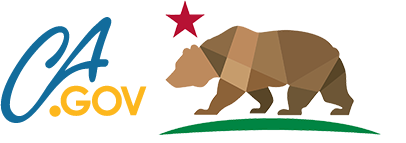
Created by Political Science and Public Policy Librarian Natalia Estrada, this guide lists resources produced by the state of California related to COVID-19. The guide links to data on COVID-19 at the national,state and county level; there are also links to COVID-related information from the state as it relates to areas of public health and healthcare, the economy, education, and housing. This is an evolving guide and Natalia will update it and add additional resources as they become available.
In the meantime, although the Library’s doors are closed, many of our services remain available.
Stay safe!
Digital Humanities Fair 2020 – Online
Join us for the 2020 Digital Humanities Fair — fully online! We are excited to share with you a rich line-up of lectures, workshops, and the DH Fair Poster Session during the week of April 13-16, including lectures by Tom White of the Victoria University of Wellington School of Design and Christiane Paul of the Sheila C. Johnson Design Center, The New School and the Whitney Museum of American Art.
The DH Fair Poster Session will feature Professor James Smithies, Director of King’s Digital Lab in London, speaking on the topic of Applying AI to storytelling. Then, learn about recent and current Digital Humanities work at UC Berkeley and beyond through our virtual poster session. The Poster Session will take place on Tuesday, April 14th from 1:00-3:30pm and requires advance registration. If you have a project to share, whether fully polished or a work in progress, we invite you to propose it!
The DH Fair is open to all. Some events will be publicly streamed, and others require advanced registration. Visit the website for details. See you then!
Thank you to our sponsors:
Arts Research Center
Berkeley Center for New Media
DH Working Group (Townsend Center)
D-Lab
The Library
V-Lab
Primary sources with pizzazz from the Oral History Center
If you’re an instructor looking for remote learning tools or a scholar or student looking for primary sources, you might just find it in our online archive.
Add some spice to your research papers, lectures, remote lessons
We’re sheltering in place, the libraries are closed, and we all need to adjust to this new “normal” of social distancing and remote learning and teaching. It may at times feel daunting to shift gears on such a tight timeline. A bit of good news in all this uncertainty: the UC Berkeley Oral History Center has an online archive of more than 4,000 interviews on a multitude of topics.
So if you’re…
- A professor, teacher, or high school administrator looking for remote learning tools
- A scholar, grad student, undergrad, or high school student looking for primary sources for your paper
…you might just find it in our online archive.
Primary sources with pizzazz — and ed tech
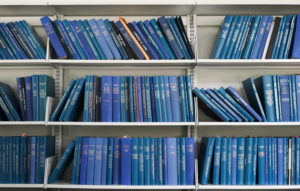
The Oral History Center (OHC) has oral history interviews on a countless number of topics, including science, engineering, medicine, business, politics, the environment, the economy, social movements, women’s rights, gay rights, art, music, literature, education, philanthropy, athletics, UC Berkeley history, and more.
The focus is on US history, California, and the West, plus some interviews with an international focus (such as global mining, communism). Information in interviews stretch back to the late 19th/early 20th century and also address some of our most recent social and political issues, including same-sex marriage and culturally competent medical care.
We’re committed to open access and all of our transcripts and interpretive materials are accessible online at no cost, whether you are a scholar, student, or member of the general public. We also have video and audio clips for many. Some transcripts are even synched to the full videotaped interview, specifically for the Rosie the Riveter WWII Home Front Collection (interviews with “View OHMS video” have this capability).
How to search the collection
There are several ways to search the vast collection.
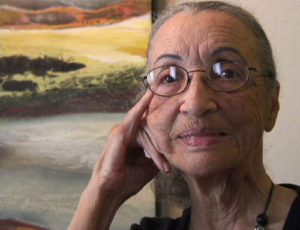
Use the search feature on our home page to find gems in our individual interviews on a myriad of topics. You can search by name, key word, and several other criteria. For example, seventy-seven oral histories mention the word “quarantine” and three “coronavirus.”
You can browse projects to see what’s in the entire collection by specific subjects.
You can scan our collection guides, for some guidance on locating interviews on topics that cross projects, such as African American history, veterans, and the Holocaust.
Podcasts
The OHC also has a podcast series, The Berkeley Remix, featuring audio recordings of our interviews on a wide range of topics, both historical and on current events, ideal for distance learning. Topics include:
AIDS and San Francisco: 6 episodes on the epidemic and community response
Engineering and Computer Science: on the microchip, open access, and Silicon Valley
Food: on the farm-to-table food movement
Parks and the Environment: 3 episodes on on preserving the land, women in non-traditional gender roles, and fighting the 1998 Oakland Hills Fire
Preserving the Coast: on saving Lighthouse Point in Santa Cruz
UC Berkeley student housing: on women’s equality, disabled student access, and desegregation
Women in Politics: 6 episodes on suffrage through the 1990s
Prestigious $500 prize for UC Berkeley undergrads
UC Berkeley undergrads who use OHC’s oral history interviews for a UC Berkeley class paper in any discipline are eligible for a $500 prize for outstanding primary source research. Students — you don’t need to write a separate paper; just submit one from a class where you have used the interviews. Instructors — if you’re teaching a UC Berkeley class where students need to write a research paper, please let them know about the Friesen Prize.
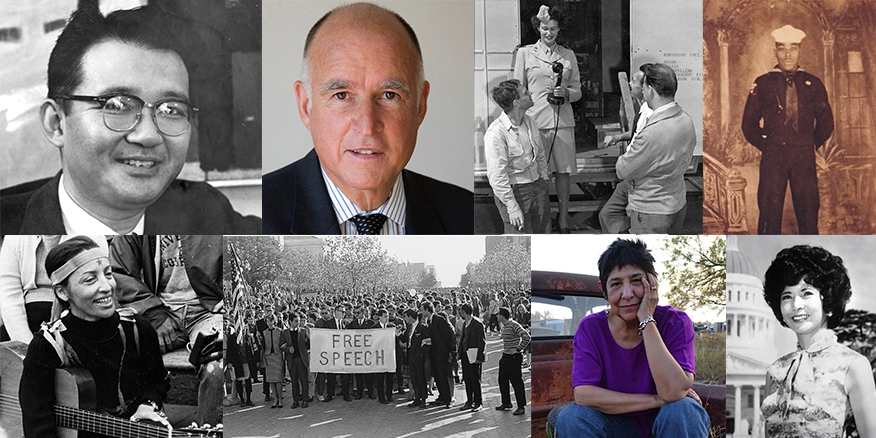
Online Reference Services and Research Help
The Library’s reference services have moved online at least through April 7th. Please see Remote Resources for UC Berkeley Library Users for the latest information on library services and resources. During this time, the Engineering & Physical Sciences Libraries are offering several ways to get reference service and research help.
Contact a Librarian
Librarians are available Monday – Friday during business hours to answer any questions you might have. Email one of us with your question or click the link to schedule an online meeting. If you’re not sure who to contact, feel free to use the Ask a Science Librarian form.
- Mathematics, Statistics, Computer Science: Brian Quigley (email; schedule a meeting)
- Civil & Environmental Engineering, Industrial Engineering & Operations Research, Mechanical Engineering, Nuclear Engineering: Lisa Ngo (email; schedule a meeting)
- Bioengineering, Electrical Engineering, Materials Science, Research Data Management: Anna Sackmann (email; schedule a meeting)
- GIS & Maps, Geography: Susan Powell (email; schedule a meeting)
- Open Science, Earth & Planetary Science: Sam Teplitzky (email; schedule a meeting)
- Chemistry, Chemical & Biomolecular Engineering, Physics, Astronomy: Kristen Greenland (email; schedule a meeting)
24/7 online help
Chat: Chat with a librarian. The chat service is staffed by Berkeley librarians, but at peak service times or off-hours you may be connected with a librarian from another academic institution.
Online guides, tutorials and videos:
- Library Research Guides – Librarian experts have created these pages to help you find resources and services by subject, course and topic at UC Berkeley.
- Remote Resources for UC Berkeley Library Users – Access expert help and remote services through this guide to library resources.
Connecting from off campus
If you are not on campus, use EZProxy or the VPN (VPN users: choose Library Access – Full Tunnel rather than the default Split Tunnel) to authenticate yourself as a Berkeley student, faculty, or staff to access online books, journals, databases, and other resources.
If a desired resource is not available as a full-text version online, Berkeley students, faculty, and staff may be able to place a request for a digital copy through our Interlibrary Borrowing Service. Check their website for current information on what is available through this service.
Lucy Sprague Mitchell: Child Education Reformer and Berkeley’s First Dean of Women
By Deborah Qu
“It was naive, but it wasn’t as naive as it sounds.” — Lucy Sprague Mitchell on chasing her dream to expand career prospects for women
One hundred and fifty years ago in 1870, the UC Regents first declared that the university’s doors were open to women students, giving them the opportunity to pursue a higher education. Access to student facilities, housing, and resources were still far from equal for women. Thus began an era where thousands of young women pioneered for positive change, making their mark on the university, as well as transforming society at large. One of these women was Lucy Sprague Mitchell, the first dean of women from 1906–1912, and one of the first women instructors in UC Berkeley’s Department of English. Mitchell, an advocate for educational reform, had observed that “public opinion reacts very slowly. And there’s always been something that irritates me, and that is the voices against are so much louder than the voices for.” Yet her unrelenting optimism and her passion for education allowed her to introduce a more holistic framework for child learning and expand career prospects for women outside the limited field of teaching.

Born in 1878, Lucy Sprague Mitchell grew up in a traditional household where any sort of play was seen as “a waste of time.” In a 1962 interview with the Oral History Center of The Bancroft Library, Mitchell recalls a multitude of happy childhood memories, but they were also mixed with conflicting feelings of unworthiness and loneliness caused by her family’s strict Puritan modes of discipline. It is possible that these childhood learning experiences were great influencers in her later experimental work in education. In her autobiography, Two Lives: The Story of Wesley Clair Mitchell and Myself, she explained how she believed that the entire learning process is not complete without the “intake” of experience transforming into an “outgo,” or some living, creative action caused from the development. Perhaps these mixed childhood memories had also inspired her to take positive action through childhood education reform.
After graduating from Radcliffe College, Lucy Sprague Mitchell was appointed as Berkeley’s first dean of women at only age 23. In her oral history, Mitchell recalled a conversation she had with the university President Benjamin Ide Wheeler. His instructions were “to find out what needs to be done and to do it.” While terrified and confused, this is exactly what Mitchell did. As dean of women, Mitchell did not succumb to the “motherly” role to students that was expected of her in the early 1900s. Instead her youthful perspective allowed her to expand beyond the traditional housing and counseling needs to truly connect with students at Cal. She initiated community trips, poetry readings, and sex education discussions. She organized Parthenia, which she fondly called greek for “women of the Parthenon,” a performative showcase about various historical women and imagined female characters.
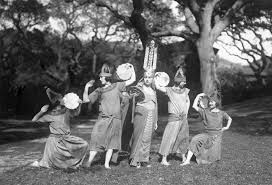
In her oral history, Mitchell reflected on why she wanted to leave her role as dean of women; Mitchell explained that her interests truly were rooted in education, not administration. During her years working with women students, she had become, she says, “extremely concerned about the lack of professional training for women excepting in the field of teaching. She explained how “not everybody is equipped to be a teacher, nor wants to be a teacher.” At the time, Mitchell found it jarring that over 90 percent of the women students she surveyed had planned to become a teacher after graduation. While Cal was progressive for its time, teaching was the most socially acceptable profession and “the only thing that the University offered to women.” In retrospect, Lucy Sprague Mitchell believed that her real reason for requesting a leave from Berkeley “was to try to explore different fields of work that women could enter and for which the University could train them.”
This disaffection inspired innovation. Lucy Sprague Mitchell brought the issue of limited education for women to six social organizations in New York, completing statistical fieldwork from women working in nursing, to labor legislation about city tenements, to public schools. Her exposure to public school education had such a profound effect on Mitchell that she became an educator resource for teachers throughout 1922–1955. She began developing experimental methods about childhood education and classroom procedure that promoted creative expression and holistically fulfilled a child’s emotional, physical, and mental needs. Her emphasis on “relationship teaching” and “active learning” over memorization helped shape the way for “social studies,” a course widely studied in American classrooms today. Her focus on the learning environment was unorthodox at the time, and it led her to new paradigms of using childhood maturity instead of age to measure emotional intellectual development. She founded Bank Street College of Education in New York as a graduate student teacher training institution in 1916 based on this same philosophy.
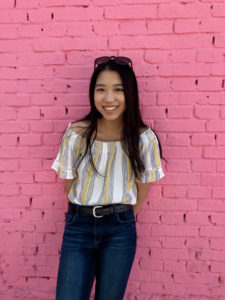
From my perspective as an undergraduate student at Cal, Lucy Sprague Mitchell’s life story teaches me that to truly orchestrate change, we should not just be focusing on the various problems of the present, but rather dreaming about all the future potential. The oral history interview allowed Lucy Sprague Mitchell to recount the early dream she had formed working with Cal students in her late 20s: to provide opportunities for young women to pursue rich and nuanced fields of study. This dream certainly did not go to waste. As a young college woman with a wide selection of majors to choose from, I am grateful that she and many others helped pave the way. Reflecting on this vision for women, Lucy Sprague Mitchell said, “Now that sounds very naive. It was naive, but it wasn’t as naive as it sounds.”
Deborah Qu is a first year undergraduate student who intends to study psychology. As a part of the celebration of 150 years of women at Berkeley, Deborah is researching the Oral History Center’s vast archive to identify women in the collection with a relationship to UC Berkeley.
Find this and all our oral histories from the search feature on our home page. You can search by name, key word, and several other criteria.
Nominate someone who’s made an impact at UC Berkeley and we’ll interview them for an Oral History
They’ve made a difference at UC Berkeley. Who are you thinking of right now?
The Oral History Center of The Bancroft Library has been around since 1953 and since then we’ve been documenting the history of UC Berkeley. Is there a Berkeley faculty, administrator, or staff person — past or present — who’s made an impact on campus? This is your opportunity to nominate someone who has made an outstanding contribution to campus life or to the teaching, research, or public service mission of the university — and we’ll interview the selected candidate for posterity. This oral history honor has been made possible by a generous endowment from the class of ’31. (Nomination form)
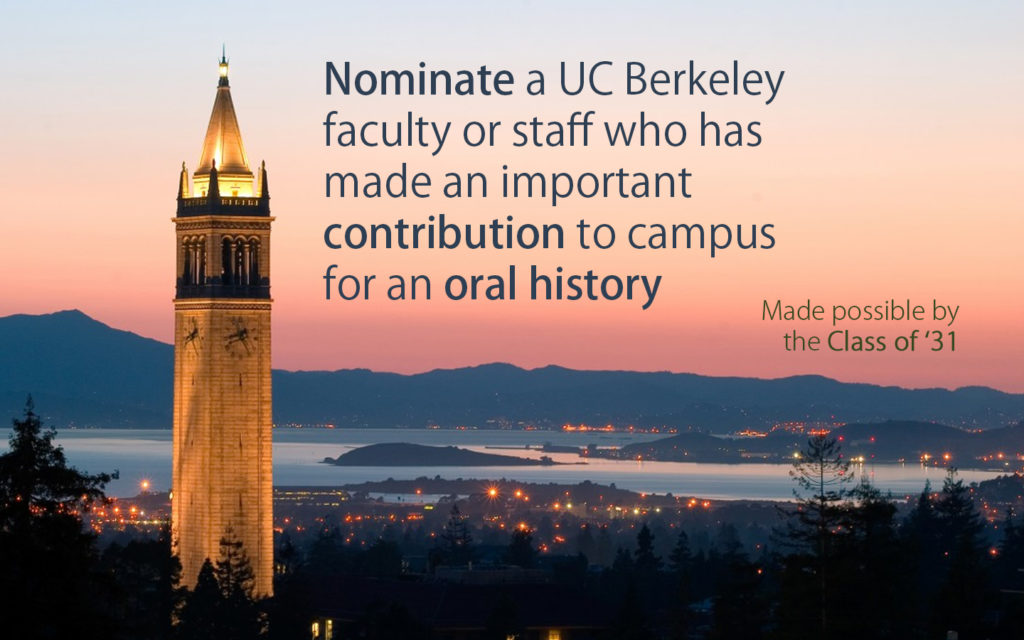
Past narrators (interviewees) have included Edith Kramer, director emeritus of the Pacific Film Archive, and Susan Ervin-Tripp, Psychology professor, Ombuds, and advocate for women’s equity on campus. Last year’s awardee was Susan L. Graham, professor emerita, Electrical Engineering and Computer Science (oral history in progress). Find these and all our oral histories from the search feature on our home page. You can search by name, key word, and several other criteria.
Nominations for the “Class of ’31 Oral History” are due by May 1 and the awardee will be announced in mid-May. If you have any questions, please contact Oral History Center Director Martin Meeker at mmeeker@library.berkeley.edu (Nomination form). Selection criteria for nominees include willingness of the nominee to participate, OHC interviewer expertise, uniqueness and rarity of the nominee’s story and level of contribution to campus life, and the generation of the nominee.
Documenting UC Berkeley’s contributions through oral history
The Oral History Center has conducted hundreds of in-depth interviews addressing key moments in UC Berkeley university history. Oral history projects about UC Berkeley consisting of multiple interviews include:
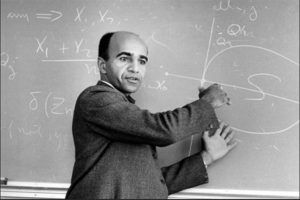
Athletics at UC Berkeley
The Free Speech Movement
History Department, UC Berkeley
The Originals (African American Faculty and Senior Staff)
SLATE (student political organization, 1958–66)
Dozens of other interviews of Cal students, faculty, and staff can be found in the collection: Education and University of California – Individual Interviews. Even more interviews of Berkeley alumni and faculty can be found throughout our collection. Interviews include several of the first female students and administrators dating back to the late nineteenth century, as well students, faculty, and staff representing a multitude of disciplines and contributions to UC Berkeley and well beyond. To get a flavor of these UC Berkeley-related interviews, see the following articles on some newly released oral histories:
“They Got Woken Up”: SLATE and Women’s Activism at UC Berkeley, by interviewer Amanda Tewes
“George Leitmann: Engineering Science, Risk, and Relationships at UC Berkeley and Beyond” by interviewer Paul Burnett
And listen to the podcast season, Let There Be Light, about the powerful impact Berkeley’s identity as a public institution has had on student and academic life, and the intertwined history of campus and community.
In Sleeping with the Light On, we explore what home and community has meant to students at Cal, and how accessible spaces have supported social justice movements on and beyond campus.
Berkeley Lightning is about the contributions of UC Berkeley Engineering to the rise of the semiconductor industry in Silicon Valley.We focus on the development of the first widely used design program for prototyping microchips. Originally designed by and for students, the software spread like lightning in part because Berkeley, as a public institution, made it available free of charge. The world has not been the same since.
Berkeley After Dark is about the connection between the history of farm-to-table eating and the campus community.
Twelve things to know about Natalia Estrada
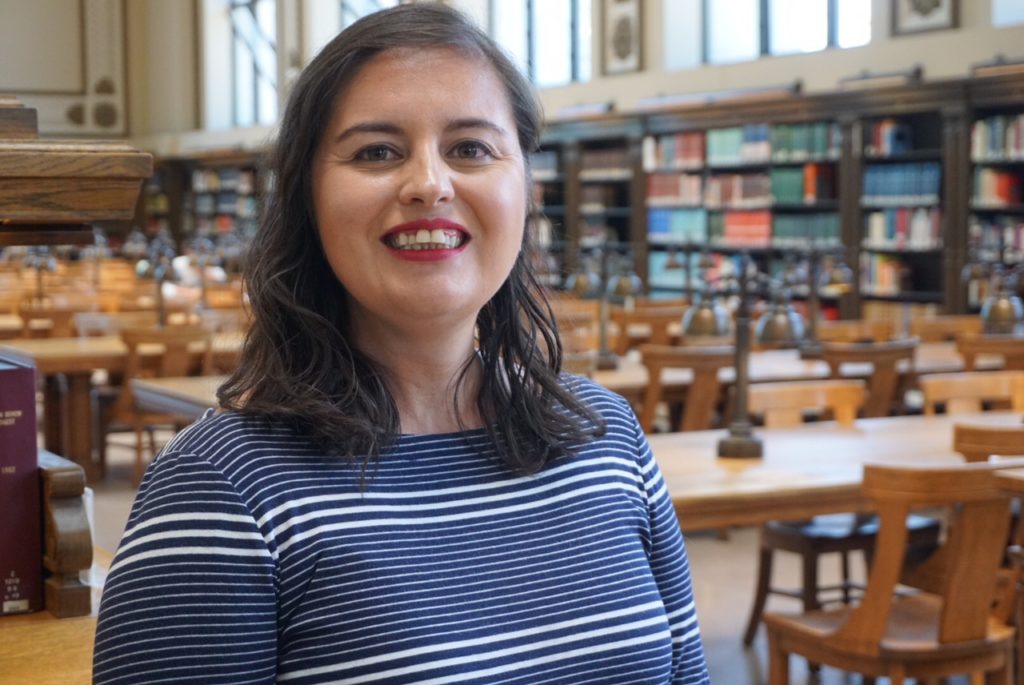
We are pleased to welcome the newest librarian in the social sciences division, Natalia Estrada. She is the Political Science & Public Policy Librarian, and is responsible for reference, instruction and collection development for the department of political science, the Goldman School of Public Policy, and legal studies. She is also the specialist for California government documents.
In a vague mash-up of the Vanity Fair Proust Questionnaire, the New York Times Book Review’s By the Book column, and Us Weekly’s 25 Things You Don’t Know About Me feature, here are twelve things about Natalia:
- I was born and raised in Downey, CA, spent a good number of years in Chicago, and have lived in the Bay Area since 2011.
- Before UC Berkeley, my library and cultural center work experience has included UC Hastings, the Center for Research Libraries, and the Museum of Contemporary Art in Chicago.
- I’m very much a puzzle solving/trivia answering sort of a person. I used to participate in the UChicago Scav Hunt during my undergrad years, I’m still searching for a good bar trivia spot, and I used to complete Sporcle quizzes for fun.
- I actually don’t spend a lot of my free time reading, so I’m pretty selective about the books I’ll read. Usually I go with horror, maybe some sci-fi, and non-fiction.
- Most of my reading gets done either during my lunch break, or when I’m on a flight. Nothing makes a better reading environment than being stuck on a plane.
- The last book I finished was Severance by Ling Ma, I’m a quarter through House of Leaves by Mark Danielwski, and I’m hoping to read In the Dream House by Carmen Maria Machado.
- My favorite book is We Have Always Lived in the Castle by Shirley Jackson. My older sister introduced me to Jackson via The Haunting of Hill House and “The Lottery” when I was in middle school, and I got hooked.
- The last great trilogy that I read was the Remembrance of Earth trilogy (aka Three Body Problem) by Cixin Liu.
- I have a small but mighty cookbook and food writing collection at home. It has your more popular cookbooks (Salt, Fat, Acid, Heat by Samin Nosrat, Bar Tartine by Nicolaus Balla and Courtney Burns), but it also has some special finds, like the 1964 edition of the Joy of Cooking.
- I cringe whenever someone ties librarianship with a “love of books.” I’m focused on helping you find the right resources for your research. Books are just a part of that, not the whole thing!
- I listen to a lot of podcasts, especially when I need to do large chunks of work, chores, or working out. Many are news based (Morning Edition, The Daily), subject deep dives (Throughline, Science Vs., The Dream), and yes, true crime (the second season of You Must Remember This, with its focus on the Manson Family Murders and Hollywood, is one of my favorites).
- My favorite movie is Tampopo, but the movie I’ll always watch is Jurassic Park.
Data Publishing with Dryad Digital Repository

The California Digital Library (CDL) recently partnered with Dryad to provide enhanced data publishing and curation support for researchers. Dryad is a free service that enables researchers to archive and make publicly available their research data for the long term. Dryad replaces Dash, which was the data repository previously available to the university.
Datasets published in Dryad receive a Digital Object Identifier (DOI) and a citation, both of which provide the data a persistent location, identification, and makes the data citable in future use. Additionally, Dryad fulfills many of the data sharing requirements stipulated by funders and publishers, many of whom may require that data be made freely and openly available at the end of a project or upon publication.
Publishing data to Dryad is relatively quick and easy. As a UC Berkeley researcher, begin the upload process by signing in to Dryad using your ORCID ID. The data is then reviewed by a curator, meaning the data is reviewed and enriched to be Findable, Accessible, Interoperable, and Reusable or FAIR. By making your data FAIR, others in your area of expertise will be able to locate, understand, and potentially reuse the data you generated. Data that is made easily findable and publicly available contributes to raising the quality of scholarly output by making the process of data production transparent. Funders require data publishing to better leverage research dollars and publishers require data publishing to enhance the quality of scholarly literature.
Please visit datadryad.org to explore published datasets. If you have any questions about preparing your data for publication or using Dryad, please contact researchdata@berkeley.edu.
